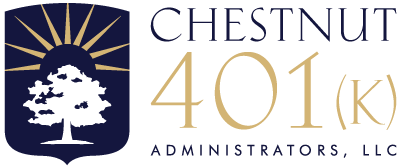
Profit Sharing Plans:
This type of plan allows for Employer contributions only. The Employer contribution amount is discretionary.
- Pro-rata Allocations. Each participant receives the same percentage of his/her compensation
- Allocations integrated with the social security wage-base
- New Comparability Allocations
- May offer a loan program
- This plan type must satisfy the top-heavy minimum requirements in a top-heavy plan year if an Employer contribution is made.
401(k)/Roth 401(k) Profit Sharing Plans:
This type of plan allows for Employee and Employer contributions.
- Employees may contribute on a pre-tax basis, an after-tax basis, or a combination of both. The maximum 401(k) limit is a combined limit. Catch-up contributions may be permitted.
- The Employer may make a discretionary or mandatory matching contribution.
- The Employer may make a discretionary profit sharing contribution as described above.
- May offer a loan program
- May have an automatic enrollment feature to increase participation
- This plan type must satisfy ADP/ACP non-discrimination testing. Corrective refunds or an Employer QNEC contribution may be required to correct a failed test.
- This plan type must satisfy the top-heavy minimum requirements in a top-heavy plan year.


Safe Harbor 401(k)/Roth 401(k) Profit Sharing Plans:
This type of plan allows for Employee and Employer contributions. The safe harbor contribution is not discretionary.
- Employees may contribute on a pre-tax basis, an after-tax basis, or a combination of both. The maximum 401(k) limit is a combined limit. Catch-up contributions may be permitted.
- The Employer may choose between a safe harbor non-elective contribution, or a safe harbor match contribution.
- If a safe harbor non-elective contribution design is chosen, then the participants of the plan would receive a 3% of compensation contribution regardless of whether the participant contributes 401(k) or not. This contribution is not discretionary.
- If a safe harbor match contribution design is chosen, then only the participants that contribute 401(k) would receive a safe harbor match contribution, up to 4% of compensation. An enhanced safe harbor match up to 6% of compensation may also be chosen.
- The Employer may make a discretionary profit sharing contribution as described above.
- May offer a loan program
- May have an automatic enrollment feature to increase participation
- This plan type is not subjected to ADP/ACP non-discrimination testing. There is no risk of receiving a corrective refund/forfeiture due to a failed test.
- The top-heavy minimum requirements in a top-heavy plan year are satisfied by the safe harbor contribution. If a profit sharing contribution is made in addition to the safe harbor contribution, the plan may still needs to satisfy top-heavy minimum requirements.


